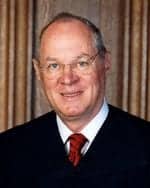 Judge Lucero then moved to the substance of the case and found that the right to marry is a fundamental right under the Fifth and Fourteenth Amendments.
Judge Lucero then moved to the substance of the case and found that the right to marry is a fundamental right under the Fifth and Fourteenth Amendments.
In response to the suggestion that the "fundamental" right is a heterosexual one, the court reminds us that the right to marry is found in "persons" and has been applied with sufficient generality to include all different kinds of persons: not just white persons, but also black persons; not just free persons, but also those who are incarcerated; not just rich persons, but also poor persons; and so on.
Nor did the marriage right come along with a natural, biological ability to procreate. Instead, the court quoted the Supreme Court case of Turner v. Safley, which allowed inmates to marry. The importance of marriage is wide and varied, irrespective of an ability or right to procreate:
First, inmate marriages, like others, are expressions of emotional support and public commitment. These elements are an important and significant aspect of the marital relationship. In addition, many religions recognize marriage as having spiritual significance; for some inmates and their spouses, therefore, the commitment of marriage may be an exercise of religious faith as well as an expression of personal dedication. Third, most inmates eventually will be released by parole or commutation, and therefore most inmate marriages are formed in the expectation that they ultimately will be fully consummated. Finally, marital status often is a pre-condition to the receipt of government benefits (e.g., Social Security benefits), property rights (e.g., tenancy by the entirety, inheritance rights), and other, less tangible benefits (e.g., legitimation of children born out of wedlock). These incidents of marriage, like the religious and personal aspects of the marriage commitment, are unaffected by the fact of confinement or the pursuit of legitimate corrections goals.
And, it goes without saying, independent of and unaffected by the biological ability to have sex with one another and produce a child.
Perhaps the most important part of the Tenth Circuit's decision begins at around page 34, where Judge Lucero continues to address the nonprocreative prerequisite of the marriage right and transitions to the impact Windsor has had on whether the fundamental marriage right extends to gay persons. Sure, there had been several pre-Windsor courts that concluded that gays marrying could not be a fundamental right. But in the post-Windsor world, that could no longer be the case. Rights are exercised by persons, not by gay persons or heterosexual persons. The right to marry is still a right to marry no matter who is wearing the suit and dress.
 That argument would have been a lot harder before Windsor. In his opinion, Justice Kennedy asserted that gay persons, and their marriages, are entitled to the same equal dignity attached to heterosexual persons and their opposite-sex marriages. It is of no moment how a state wants to define the word "marriage." No matter what its voters may have said, the fundamental right to marry cannot be legislated away from a discrete group simply because voters don't like that group. It remains the individuals' fundamental right.
That argument would have been a lot harder before Windsor. In his opinion, Justice Kennedy asserted that gay persons, and their marriages, are entitled to the same equal dignity attached to heterosexual persons and their opposite-sex marriages. It is of no moment how a state wants to define the word "marriage." No matter what its voters may have said, the fundamental right to marry cannot be legislated away from a discrete group simply because voters don't like that group. It remains the individuals' fundamental right.
Judge Lucero's opinion is a gay rights lawyer's dream. It takes us through the Supreme Court's and other federal courts' gay rights jurisprudence and applies it to the question at hand, smacking down Utah's outdated arguments one by one. It also explains how Windsor has made the gay rights advocate's work much easier. It shows, therefore, how one victory builds on the last victory and helps create the next one. We have built a solid foundation of freedom and equality and the Tenth Circuit's opinion both reflects it and builds upon it.
The question is: What happens now?
Stay tuned for continued coverage of this case (including the dissent) and next steps.
***
Follow me on Twitter and on Facebook. Check out my website at www.ariewaldman.com.
Ari Ezra Waldman is a professor of law and the Director of the Institute for Information Law and Policy at New York Law School and is concurrently getting his PhD at Columbia University in New York City. He is a 2002 graduate of Harvard College and a 2005 graduate of Harvard Law School. Ari writes weekly posts on law and various LGBT issues.



